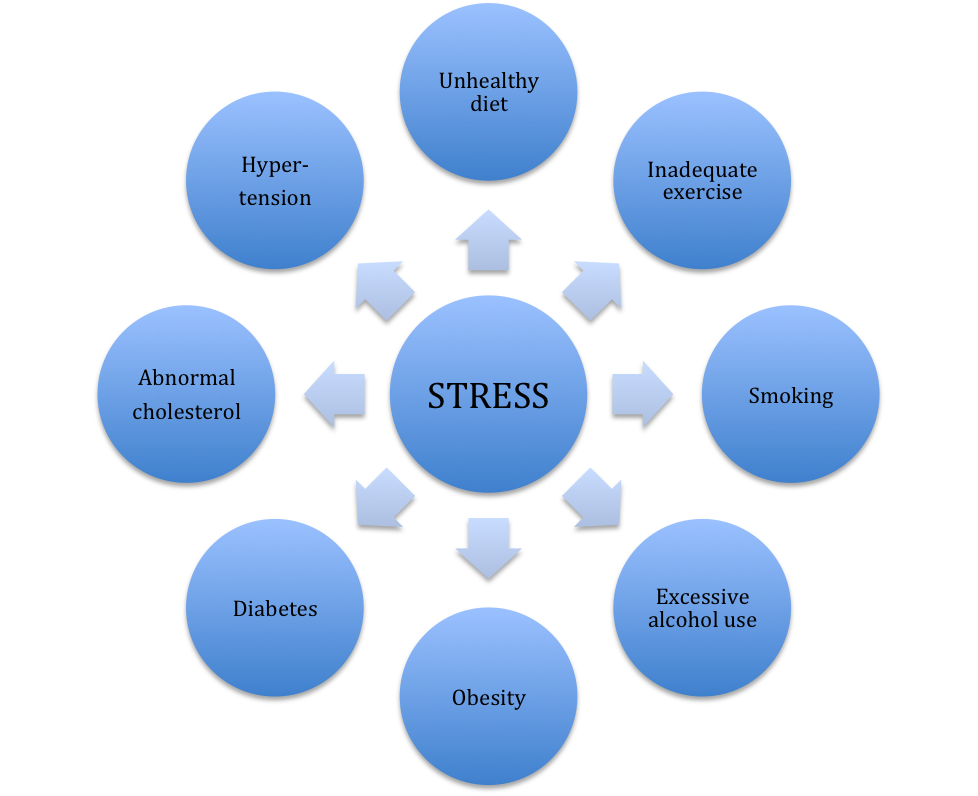What is stress?
The word stress has become synonymous with mental stress, which is nothing but a psychological imbalance triggered by environmental factors. We’ve all experienced one or more stressful situations during our lifetime – work deadlines, competitive exams, lack of support, financial crisis, separation of a loved one, family pressure – and so on and so forth. The question at hand is “can these be life-threatening?” And the answer is “yes”.
Let me explain myself. Stress can be acute or chronic; positive or negative; obvious or hidden and, most importantly, well-managed or poorly-managed. In other words, stress can be benign when short-lived, constructive, identified, acknowledged and appropriately managed. And malignant when not.
Stress and the heart
There are 9 modifiable risk factors for heart attack of which stress (grouped under psychosocial factors) is the most sinister; it is not only the most difficult to diagnose but also the only factor that can potentially cause all of the other factors (all 8 of them shown in the image below; you can enlarge the image by clicking on it).
And there are 2 other important mechanisms of stress induced heart disease namely coronary vasospasm and stress cardiomyopathy. We will discuss these entities in a separate blog post.
A real-life example
We recently provided cardiac rehab for a 44-year-old gentleman who had suffered a critical heart attack and had undergone angioplasty with stenting. He came to us 2 weeks after discharge and was very worried about his health. Both he and his wife were confused, anxious and upset. They were concerned about the future of their family, which included 2 young children and elderly parents. We began by explaining to them the cause for his heart attack; his lifestyle risk factors were lack of exercise and unhealthy eating habits, his metabolic risk factors were obesity, dyslipidemia and diabetes and his newly-diagnosed risk factor was uncontrolled severe stress related to the financial woes of his construction business. The point that these were all modifiable risk factors and that he could lead a very healthy and normal life moving forward was their only consolation. And he was determined to do all he could to ensure a strong heart and a good health, for his own sake and that of his family. And so began his journey to a successful cardiac rehab program, enriched with behaviour modification and stress management sessions, psychological counselling and diet education, supervised exercise and risk factor management training.
At the end of the rehab program, he was confident about his health and was motivated to adhere to a healthy lifestyle for a lifetime. He enrolled in a maintenance plan for continued healthcare support. His wife was convinced that this was a life-changing program for her husband and that her family’s health was now guaranteed due to all the knowledge and awareness she had gained from us.
Stress mantras
So, remember these simple stress mantras for a healthy life.
- Stress does not come from outside; it is your own response to the outside world
- Do not be afraid of stress; do not ignore stress
- Be aware of your stress triggers
- Try to avoid or overcome the recurring triggers
- Manage your stress appropriately
- Get professional help if necessary
- There is no one size fits all solution to manage stress, each individual is different
